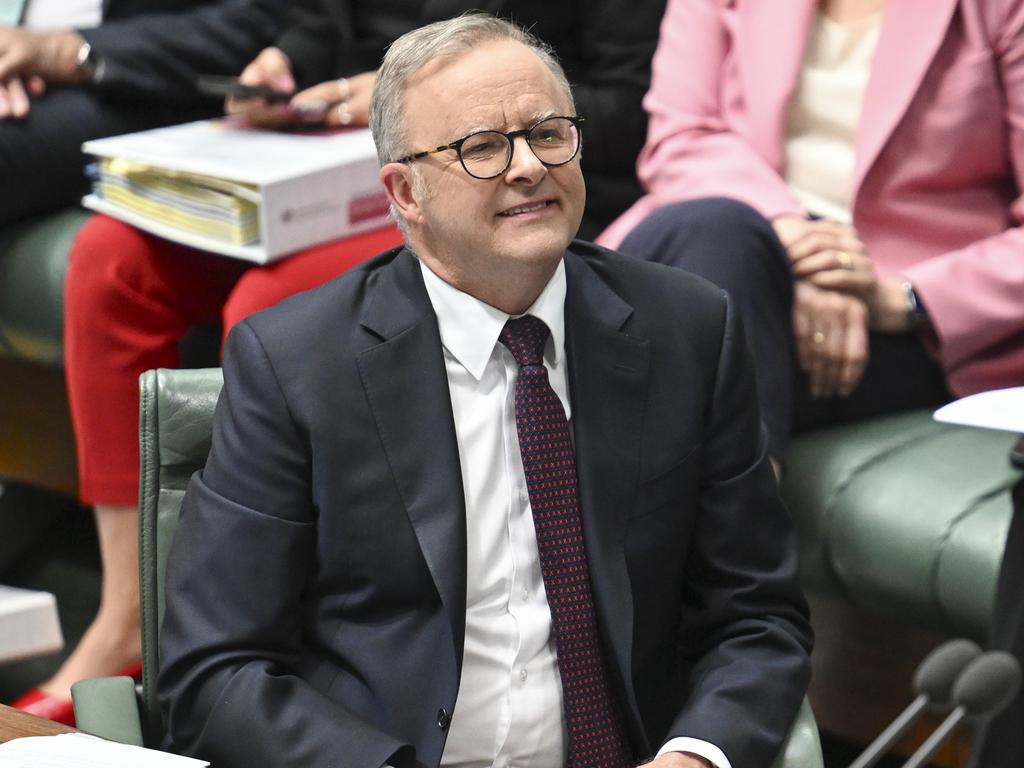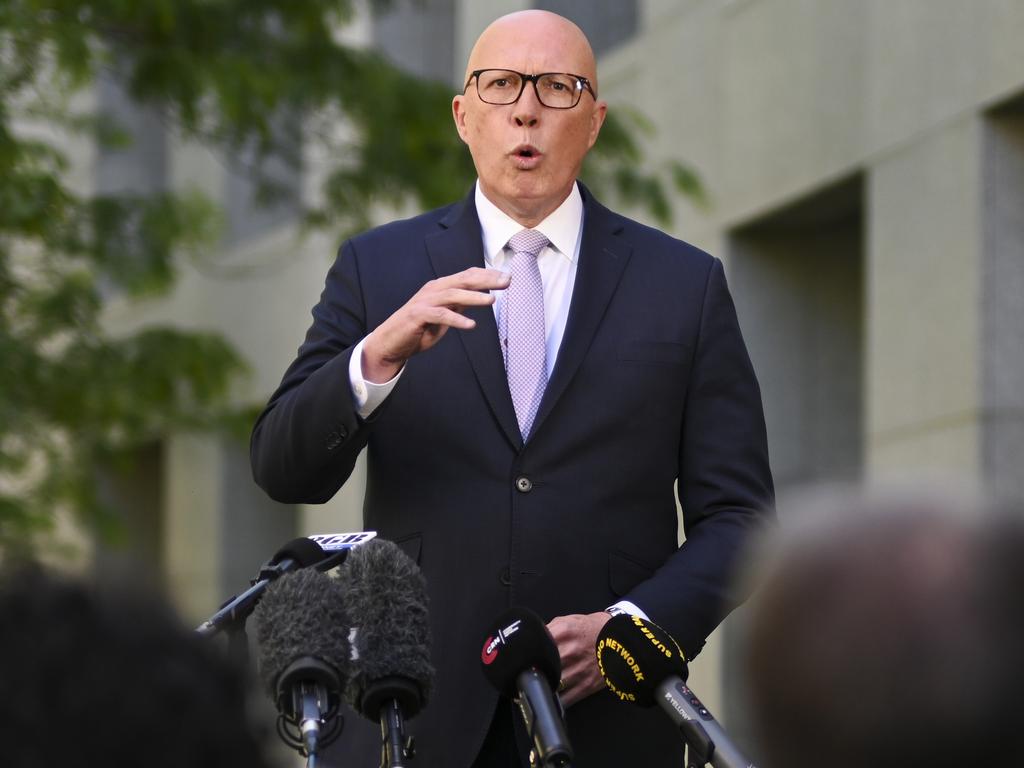‘That’s just not true’: Zali Steggall and Don Farrell in parliament corridor stoush over election funding laws
Independent Zali Steggall has blasted Special Minister for State Don Farrell at a doorstop in Canberra over controversial new electoral reforms agreed to by the two major parties.

Independent Zali Steggall has blasted Special Minister for State Don Farrell in a Parliamentary corridor stoush during a doorstop in Canberra over controversial new electoral reforms agreed to by the two major parties yesterday.
As Senator Farrell declared the parliament had been examining the matter of electoral reform for three years, Ms Steggall stood on the sidelines of the media microphones and said “that’s not true”.
“Why don’t you tell the Australian people what is going to happen, the big money in politicas will be the public money?” Ms Steggall said.
The Warringah MP said unions would also benefit from the new laws.
Senator Farrell hit back and said “that’s completely untrue” and that unions were subject to exactly the same rules as all donors.
Ms Steggall looked towards the cameras as she asked “have you explained nominated entities? The big pool of cash parties now have available to them?”, which she called a “secret loophole”.
She said ordinary Australians would see a 47 per cent increase to how much the public would pay per vote.
When told by a voice off camera that “this is a press conference”, Ms Steggall said independents found out details of the deal between Labor and the Coalition through the press, so she would continue challenging Senator Farrell “in front of the press”.
Funding law to hit tycoons and teals
Labor and the Coalition have struck a deal over once-in-a-generation electoral reforms that will significantly curb the influence of billionaires and multi-millionaires like Clive Palmer and Simon Holmes a Court.
The government has more than doubled it proposed $20,000 donation cap to get its legislation over the line without needing the Greens or the crossbench.
Senator Farrell received the tick-off from the Coalition on the legislation following meetings on Tuesday afternoon, in which he also agreed to lift the bill’s $1000 disclosure threshold to $5000.
While Labor was hoping to keep the annual cap on donations to parties or candidates at $40,000 or less, it agreed to set the cap at $50,000 following months of negotiations.
Other elements of the bill – such as capping parties’ total election spend at $90m across the country and $800,000 per electorate – remain the same and will come into force at the election after next.
Significant third parties, such as unions, peak bodies or organisations like Mr Holmes a Court’s Climate 200, will be subject to an expenditure cap of $11.25m a year.
Expedited disclosure times will also be introduced, so that the public no longer need to wait 24 weeks after polling day to discover how much money was raised and spent by parties.
Instead, donations over $5000 will need to be disclosed within seven days once an election is called or within 24 hours in the week before and after polling day. Outside of an election, monthly donation disclosures will be required.
The changes come as Mr Palmer on Wednesday slammed the High Court’s decision to stop the United Australia Party from re-registering before the next election, due by May 17.
The UAP voluntary deregistered after the 2022 election, with the law stating that parties can’t re-register in the same electoral cycle. Mr Palmer has selected barrister Harry Fong to lead a Queensland independent Senate team and lawyer and mediator James Unkles to lead an independent Senate team in Victoria.
Senator Farrell last year drew close to securing the support of the Coalition for the reforms, but pulled the legislation off the notice paper in the final sitting fortnight of 2024. In a veiled threat to the opposition at the time, Labor said it was open to doing a deal with the Greens, with the minor party likely to seek changes to the legislation not necessarily in the Coalition’s interest.
But Greens MPs this week said it had been clear early on that the government would seek to strike a deal with the opposition.
Senator Farrell said in November that “this level of reform doesn’t come without challenges”. “If these changes were easy, someone else would have made them,” he said.
The bill will also increase public funding per vote from $2.91 to $5, more than 70 per cent of which will flow directly to major parties, independents have argued.
The crossbench widely criticised the bill – debated in the Senate late on Wednesday – for entrenching the advantage of the two major parties, both of which have suffered a hit to their primary vote as more independents run at federal elections.
“This bill is a life raft the major parties are desperately clinging to,” Tasmanian independent senator Tammy Tyrrell said.
The legislation is designed to disrupt the emerging “super political action committees” coming out of the US and describing organisations which can raise and spend unlimited sums of money to advocate for or against a party.
Climate 200 is widely considered Australia’s first super PAC, despite its founder, Mr Holmes a Court, stressing the money given to teal candidates comes with “no strings attached”.
WA independent MP Kate Chaney – who received $450,000 from Climate 200 at the last election – said the legislation was “just so full of holes and unfairness that locks in the two party system”.








To join the conversation, please log in. Don't have an account? Register
Join the conversation, you are commenting as Logout